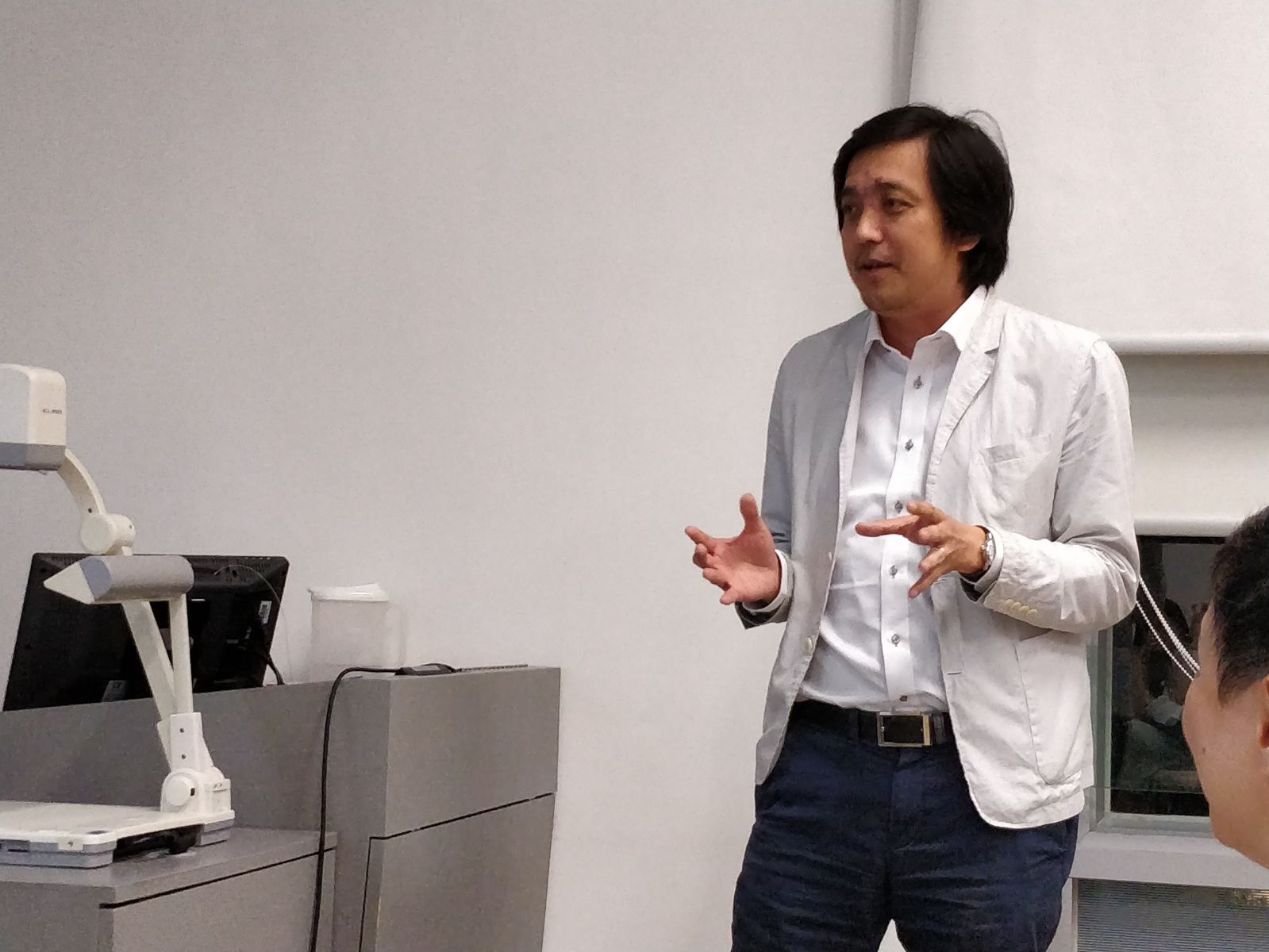This year marks the 25th anniversary of Varsity, which was launched as the English language practicum magazine of CUHK’s School of Journalism and Communication.
We tell stories – in print and online – from and about Hong Kong, in English for people both here and further afield. And we’re not alone – although the mainstream English language media landscape in Hong Kong seems diminished compared to 1993, the emergence of online media has led to new opportunities.
We invited our some of our fellow storytellers to join us for a panel discussion on “Telling Hong Kong Stories” on Friday 27th April. Don’t worry if you have missed it. Read our live-blog coverage below to catch up, or watch the full recording here.
8:05pm
This concludes Varsity’s 25th anniversary panel discussion. We would like to thank the speakers and audience members who showed up on a Friday night to contribute to this fruitful exchange. Have a good evening!
8:00pm
In his closing remarks for tonight’s discussion, Francis Lee, Director of CUHK’s School of Journalism and Communication, spoke of the challenges of telling Hong Kong stories – especially after the Umbrella Movement. He says it is important for more people to tell more diverse Hong Kong stories.

7:45pm
Audience member Cindy, who is a Varsity alumni, asked if there is tension between telling the Greater China story and the local Hong Kong story – especially with the influx of funding from the Mainland. Are there pressures to tell certain stories and neglect others?
Alan Wong said he was 100 per cent confident that none of that was happening. He said since a lot of their readers at SCMP’s Inkstone are Hongkongers, they will continue to care more about Hong Kong stories, even though they are receiving funding from Chinese company Alibaba. Wong said the current business models of media lead to a pursuit of stories that would get the most clicks – neglecting minority voices. He said having more independent voices could fill in some of the gaps.
Holmes Chan said he believes that international and local discourse does not have to be mutually exclusive. But he added that “we have to find ourselves interesting, before others can find us interesting.”
Karen Cheung said the problem with international correspondents is that they only come for a few years and then leave, not staying long enough to understand Hong Kong’s complexities. “Every new correspondent comes and pitches a story about cage homes, so you see those stories in international media every few years,” she said. She thinks international news outlets need to hire more local reporters so that more stories can be told beyond the global image of Hong Kong.
7:30pm
Gloria Fung, a Hongkonger living in Canada, said a lot of organisations concerned about Hong Kong’s situation were formed globally after the Umbrella Movement. She asked how Hongkongers abroad can more effectively get their stories covered by Hong Kong media.
In response, Oiwan Lam suggested diaspora communities develop sustainable media networks on their own, and make better use of community media.
7:20pm
Karen Cheung stressed the importance of keeping international audiences interested in the Hong Kong story, particularly after major events such as the Umbrella Movement or Xi Jinping’s visit. She said the challenge was to frame local stories in a way that would be relevant to international audiences.
Dr. Brian Fong agreed, saying that it was crucial to get the international community concerned about the city. He said it would be impossible for Hong Kong to retain its autonomy without international support.


7:00pm
The floor is now open for questions.
Audience member Cindy Ng, a former journalist and Varsity alumni, asked Holmes Chan why he chose to use English to tell Hong Kong story. “Wouldn’t it be easier to reach local Hong Kong audience using Chinese?” she asked.
Chan said he thinks English long-form stories offer unique elements which cannot be replicated using Chinese. He said that while writing in English does make it challenging to reach everyone, it is never possible to reach all audiences. He adds that they are not settling for just a niche audience. “If you have something that is attractive enough, they won’t come for the English, but for the story,” he said.

6:55pm
Dr. Brian Fong’s Network DIPLO tells Hong Kong stories through citizen diplomacy. Their events include talks and free guided tours that share with tourists the history and politics of Hong Kong and China. He said Hongkongers have the responsibility to tell their own stories.

6:45pm
In-Media founder Oiwan Lam says Hong Kong stories are not limited to a Hong Kong audience. Working as the North East Asia regional editor at Global Voices online, she says their stories receive the most traffic from Taiwanese readers.

6:35pm
Holmes Chan from Still/Loud said English news media in Hong Kong tend to “export” stories to foreign readers, rather than prioritise stories for the local community. He said he aims to write stories about Hong Kong people for Hong Kong people.

6:20pm
Inkstone’s Alan Wong said the key to pitching a good story is to respect what the audience is interested in, and innovate new ideas based on existing stories. He said it is important to not dumb down Hong Kong stories but instead to do a better job in finding new angles and different ways to tell the same story.

6:15pm
As the first speaker in the discussion, Karen Cheung from Hong Kong Free Press said independent and not-for-profit English news media are important because they are accountable to the public. Cheung says English media outlets have taken a role in providing coverage of social issues affecting minority communities such as the LGBTQ community and domestic helpers. She also said they were less prone to stereotyping these groups, compared with Chinese media.

6:00pm
Guests are arriving and the talk will begin shortly. If you are not able to make it to the talk tonight in person, you can still watch it live on our Facebook page where we will be live-streaming the event.
Here are brief introductions to our panelists:
Holmes Chan is associate editor for Still / Loud, an independent magazine about music, art, and culture in Hong Kong. His work has also appeared on Hong Kong Free Press, 眾新聞 CitizenNews, Art Asia Pacific, and 香港01周報. In his spare time he studies law and literature at HKU.
Karen Cheung is a senior reporter at Hong Kong Free Press. Her work has appeared in Al Jazeera, openDemocracy, LARB China Channel, and others. She is also ArtAsiaPacific’s Hong Kong desk editor and a co-founder of Still / Loud. She is a BA (Literary Studies) and LLB graduate from the University of Hong Kong.
Dr. Brian Fong is a political scholar, he has published extensively in journals, books, newspapers, etc. about the politics of Hong Kong. He is also very active in community services leading the work of several civil society organizations.
Oiwan Lam is one of the founders of In-Media HK, a Chinese independent media outlet set up in 2004. She is also Northeast Asia regional editor of Global Voices, a platform that translates and carries reports from local citizen journalists and writers for global readers. In addition to this, Oiwan has been teaching the Master’s course, new media and society at the Chinese University of Hong Kong for more than eight years.
Alan Wong is a graduate from Hong Kong Baptist University’s journalism program, where he edited The Young Reporter (Varsity’s BFF, or arch-rival?). Before joining Inkstone, a new China-focused news site and a unit of SCMP, he helped cover Hong Kong for The New York Times for four years, first as a news assistant and then as a digital editor.
Moderator:
Yuen Chan is a senior lecturer at the School of Journalism and Communication at CUHK and oversees the Varsity practicum. Before this, she worked as an English language journalist in Hong Kong for print, radio and TV, and as a foreign correspondent in Shanghai and Beijing. Her work has appeared in KQED, the BBC World Service, CBC, ABC, CNNI, Al Jazeera, Hong Kong Free Press and CitizenNews.








































